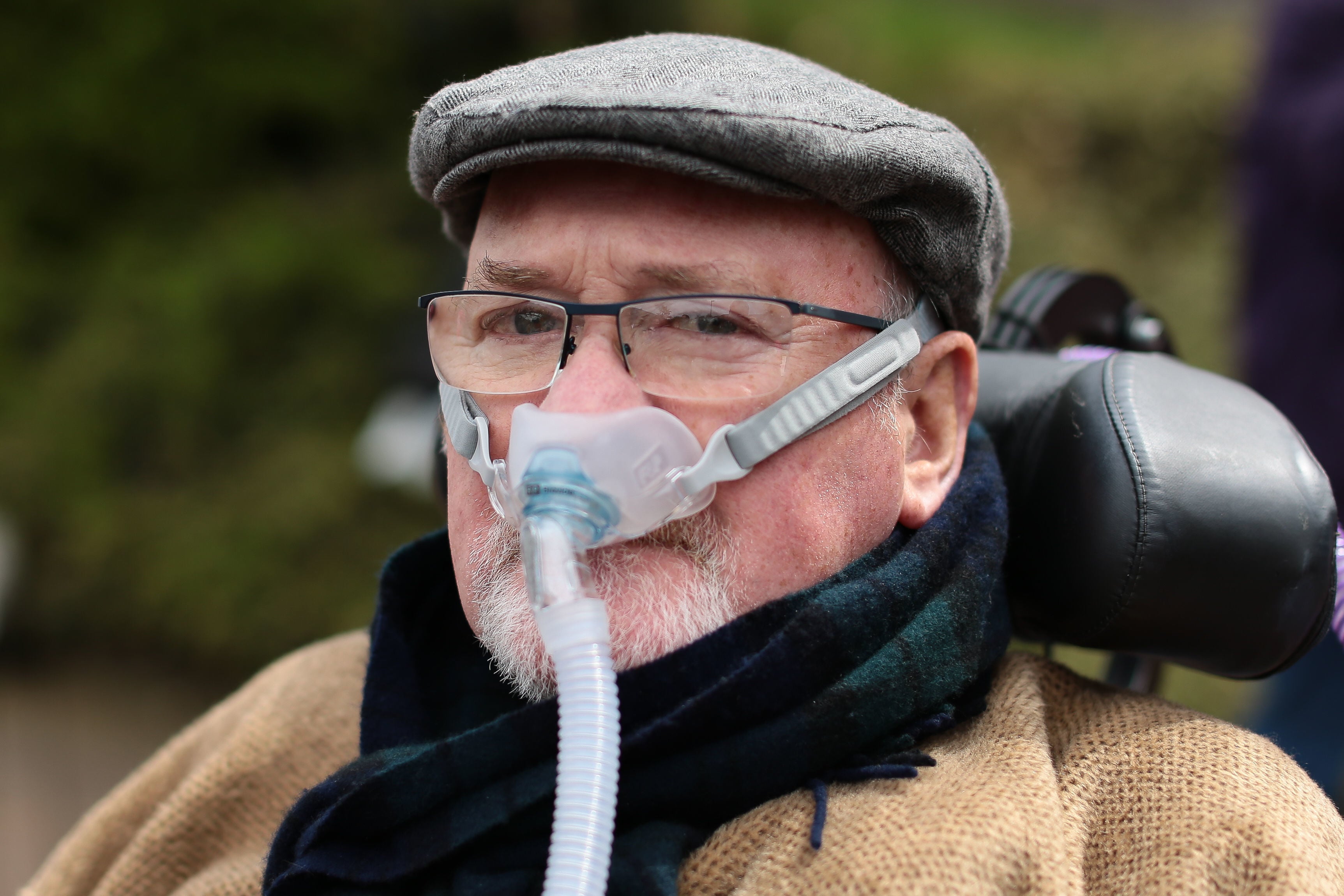Noel Conway: Assisted dying campaigner dies after removing his ventilator
Campaigner made ‘a conscious and deliberate effort’ to die after his quality of life ‘dipped into the negative’

Your support helps us to tell the story
From reproductive rights to climate change to Big Tech, The Independent is on the ground when the story is developing. Whether it's investigating the financials of Elon Musk's pro-Trump PAC or producing our latest documentary, 'The A Word', which shines a light on the American women fighting for reproductive rights, we know how important it is to parse out the facts from the messaging.
At such a critical moment in US history, we need reporters on the ground. Your donation allows us to keep sending journalists to speak to both sides of the story.
The Independent is trusted by Americans across the entire political spectrum. And unlike many other quality news outlets, we choose not to lock Americans out of our reporting and analysis with paywalls. We believe quality journalism should be available to everyone, paid for by those who can afford it.
Your support makes all the difference.Assisted dying campaigner Noel Conway has died at the age of 71 after removing his ventilator.
Mr Conway, who had motor neurone disease (MND), died on Wednesday at his home in Shropshire.
In a statement released by campaign organisation Dignity in Dying following his death, Mr Conway said that he had made “a conscious and deliberate effort” to die after his quality of life “dipped into the negative”.
He said: “When you read this I will be dead. Not because I have suffered a tragic accident or died suffering from a long-standing or painful disease.
“No, it will be because I have made a conscious and deliberate effort to end my own life. I suffer from MND and was diagnosed over six years ago knowing that at some stage I would reach a point when my muscles would have deteriorated to such an extent that I could not function effectively.
“Over the past two months it has become increasingly evident to me that the balance of fulfilment in life, or if you like, my quality of life, has dipped into the negative... My voice has depleted to the extent that many people cannot now tell what I say and my eyesight recently deteriorated.
“I’m already a paraplegic and I cannot use my hands or fingers but I am aware that my neck muscles are weakening as are my mouth and speech muscles. I recognise that the time has come to take the decision now to do something about this.”
The retired lecturer, who was diagnosed with motor neurone disease in 2014 and said he felt “entombed” by his illness, lost his appeal against the UK’s ban on assisted dying in 2018.
After losing his legal challenge, Mr Conway urged MPs to make assisted suicide legal. He said: “Dying people like me cannot wait years for another case to be heard. All I want is the option to die peacefully, with dignity, on my own terms, and I know that the majority of the public are behind me. It is downright cruel to continue to deny me and other terminally ill people this right.
In his statement this week, he said he recognised that it may take him up to eight hours to die after removing his ventilator, which he said was “far removed” from the “swift” end-of-life process as practiced in countries such as Switzerland.
His wife, Mrs Conway said, that although he had been “in control” of his death, the “uncertainty” over how long it would take led to them experiencing “considerable anxiety”. She said his carers “ensured Noel had a painless and dignified death, demonstrating empathy and concern for us all”.
Mrs Conway said: ”Ultimately, Noel wanted the choice of an assisted death, and I hope his campaigning will bring this option closer to becoming a reality for other terminally ill people in this country.”
Sarah Wootton, chief executive of Dignity in Dying, said: “Noel will be sorely missed by all of us at Dignity in Dying and we extend our sincere condolences to Carol, their family and friends.
“We are indebted to Noel, an inimitable and award-winning campaigner who helped put assisted dying firmly on the political agenda in this country.
“Noel fought in the courts, lobbied parliamentarians and spoke powerfully to the media about his suffering under the UK’s blanket ban on assisted dying, all the while knowing any change would most likely come too late for him.
“Noel will be remembered as a loving husband, father, grandfather, friend, lecturer, mentor and for playing an instrumental role in bringing us closer to having a safe, compassionate assisted dying law in this country.”
Join our commenting forum
Join thought-provoking conversations, follow other Independent readers and see their replies
Comments